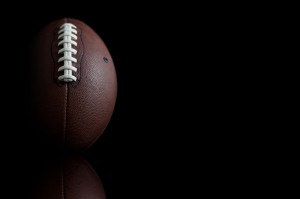Can I Like Football and Still Be a Humanist? Thoughts on NFL Draft Day
 Photo by nytumbleweeds / 123RF
Photo by nytumbleweeds / 123RF Today is Draft Day, the first day of the National Football League’s recruitment of the best college athletes in the nation to the professional league. Obviously, this is a big deal for football fans. Teams who had a poor year (sorry, Buccaneers) rest their hopes on an early star pick, likely in the quarterback position, while the teams that did well (curse you, Patriots) see the draft as an opportunity to enhance certain positions or close existing gaps in their personnel.
A humanist colleague of mine used to share my passion for the National Football League. But when I mentioned to him my excitement about who will be picked first in this year’s draft, his face darkened. “I don’t watch football anymore,” he said. “And as a humanist, neither should you.”
I knew exactly what he meant. Between the domestic violence, sexual assault, murder, and child abuse cases, it’s hard to justify my continued love of American football while embracing the core humanist principle of compassion. The author Malcolm Gladwell called football a “moral abomination” comparable to dog fighting. The game of football cannot solely be to blame for all of the above-referenced tragedies, but a culture that celebrates a game where men tackle each other violently to the ground can’t be ignored as a factor.
Then there’s the scientific evidence that playing football can lead to severe brain damage—and the NFL now admits it. According to the New York Times, one-third of retired players will develop long-term cognitive problems, and “playing football increases the risk of developing neurological conditions like chronic traumatic encephalopathy, a degenerative brain disease that can be identified only in an autopsy.” In fact, as reported in Mother Jones, researchers examined the brains of deceased NFL players only to discover that seventy-six out of seventy-nine of them had brain disease.
In March, San Francisco 49ers linebacker Chris Borland retired at the age of twenty-four, after just one year playing for the NFL. He explained to ESPN, “I just thought to myself, ‘What am I doing? Is this how I’m going to live my adult life, banging my head, especially with what I’ve learned and knew about the dangers?’” He was soon followed by fellow Pro Bowl teammate Patrick Willis, who said. “Honestly, I pay attention to guys when they’re finished playing, walking around like they’ve got no hips and they can’t play with their kids. They can barely walk.” And football analyst and former quarterback Terry Bradshaw said, “If I had a son today…I would not let him play football….The fear of them getting these head injuries—and they’re out there—it’s just too great for me.”
Will all these problems spell the end of the National Football League? Likely not anytime soon. The NFL creates countless jobs and generates $9 billion a year. Half of America’s population count themselves as football fans. Football is seen as a ticket to wealth and fame—and some are more than willing to sustain bodily damage to achieve it.
And though we won’t see change overnight, the league is working to solve many of these problems. It was heartening to see many prominent NFL players participate in the No More Campaign to end domestic violence and sexual assault, and every NFL employee—including the twenty-eight draft prospects this year—goes through mandatory domestic violence and sexual assault education. The development of “smart helmets,” which have been tested on high school players, have shown promise in reducing concussions. And though some argue that they don’t go far enough, NFL Commissioner Roger Goodell has made changes to the league’s policies that result in harsher punishments to any NFL employee who violates their code of conduct.
So, can I like football and still be a humanist? Yes, if I can help the efforts of many holding the NFL accountable when it comes to protecting its players and those affected by violence. But football is no longer just a game—it comes with serious consequences that we, as a football-worshiping nation, will have to eventually deal with.
